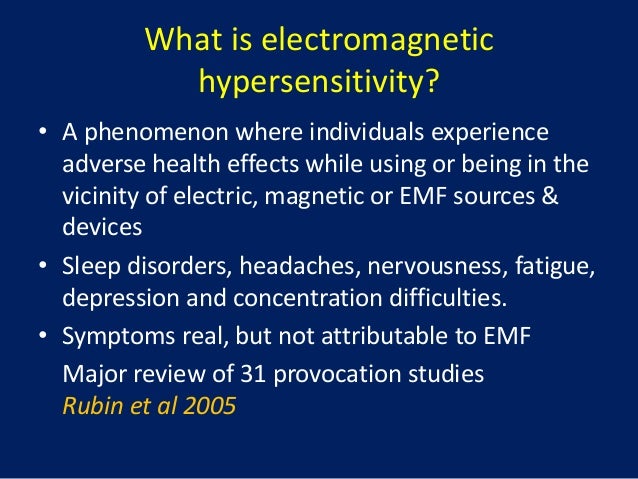The sensitivity to electromagnetic fields (EMF sensitive) refers to a state where the person is a sensitivity to the electromagnetic fields that surround him. It isn't restricted to situations that do not have electrical current, but can affect people who have an open circuit or who are subject to magnetic fields over prolonged periods of time. The Environmental Health Center-Dallas has a comprehensive understanding of the factors that cause EMF sensitivity, and can help patients treat the symptoms. The center has the ability to perform tests to determine whether an individual is susceptible to EMF exposure. This is possible using the latest technology to measure heart rate variability.
I.E.-EMF sensitivity is a sign of exposure to emf
Electromagnetic contamination and the generated electromagnetic fields have been implicated in the onset of a number of ailments. The symptoms can be difficult to detect as some have reported a range of symptoms. It could be because of pre-existing health conditions or an ailment that is caused by exposure to high levels radiation fields. Whatever the reason the symptoms can be very debilitating to individuals who experience these. However, the scientific community is still not certain of how prevalent the IEI-EMF sensitivity syndrome is and how widespread it is.
It is not a symptom of electrohypersensitivity
While the symptoms of electrohypersensitivity and EMF sensitivity are similar, there are some key differences. emf sensitivity symptoms can be not understood, and the symptoms can vary widely. emf sensitivity symptoms is crucial to receive an accurate diagnosis in order to determine the root cause and possible treatments.
It is not a symptom of EHS
Although EMF sensitiveness isn't an underlying symptom of EHS, it is often related to the disorder. Some studies suggest that the disorder is linked to genetics and environmental factors rather than a particular physical problem. Despite this, more research is needed to make definitive conclusions.
It can be perplexing
The signs of EMF sensitivities can be confusing. A majority of EHS sufferers don't attribute their condition to a specific cause. They seek medical help, but are unable to obtain a convincing diagnosis. It is possible that they could be suffering from any mental disorder of some kind that can lead to an increased feeling of despair and anxiety.
electromagnetic hypersensitivity symptoms can be frightening

Electromagnetic fields or EMFs, can be terrifying. People have reported unpleasant symptoms when they are exposed to these fields, which originate from devices like Wi-Fi routers as well as mobile phones. The symptoms can range in severity, and in severe cases, people are forced to avoid electric devices and fluorescent lighting. In extreme cases, sufferers may be forced to withdraw from the world of modernity living in isolated areas known as "EMF-free zone".
It may aid in melatonin production
One of the most vital hormones found in our bodies, melatonin, is synthesized by the pineal gland. It plays a role in a variety of biological functions, such as circadian rhythm regulation. However, its role as a protection factor from non-ionizing fields of electromagnetic radiation has been questioned mostly due to the inconsistency with the results of different studies. The current understanding of this hormone's protective mechanisms is mostly based on our knowledge of the mechanism through which it protects the body against the oxidative stress induced by RF/ELF exposure.
It can help with autonomic nervous system changes
A number of studies demonstrate that EMF sensitivities can impact the autonomic nervous system. Patients suffering from this condition could be affected by altered autonomic reactions and may experience digestive issues. Certain patients may have difficulty digesting food correctly or feel sick when they eat a smaller amount. Others may experience changes in body temperature or are suffering from heat intolerance. These conditions are usually related to other health issues, such as diabetes.
